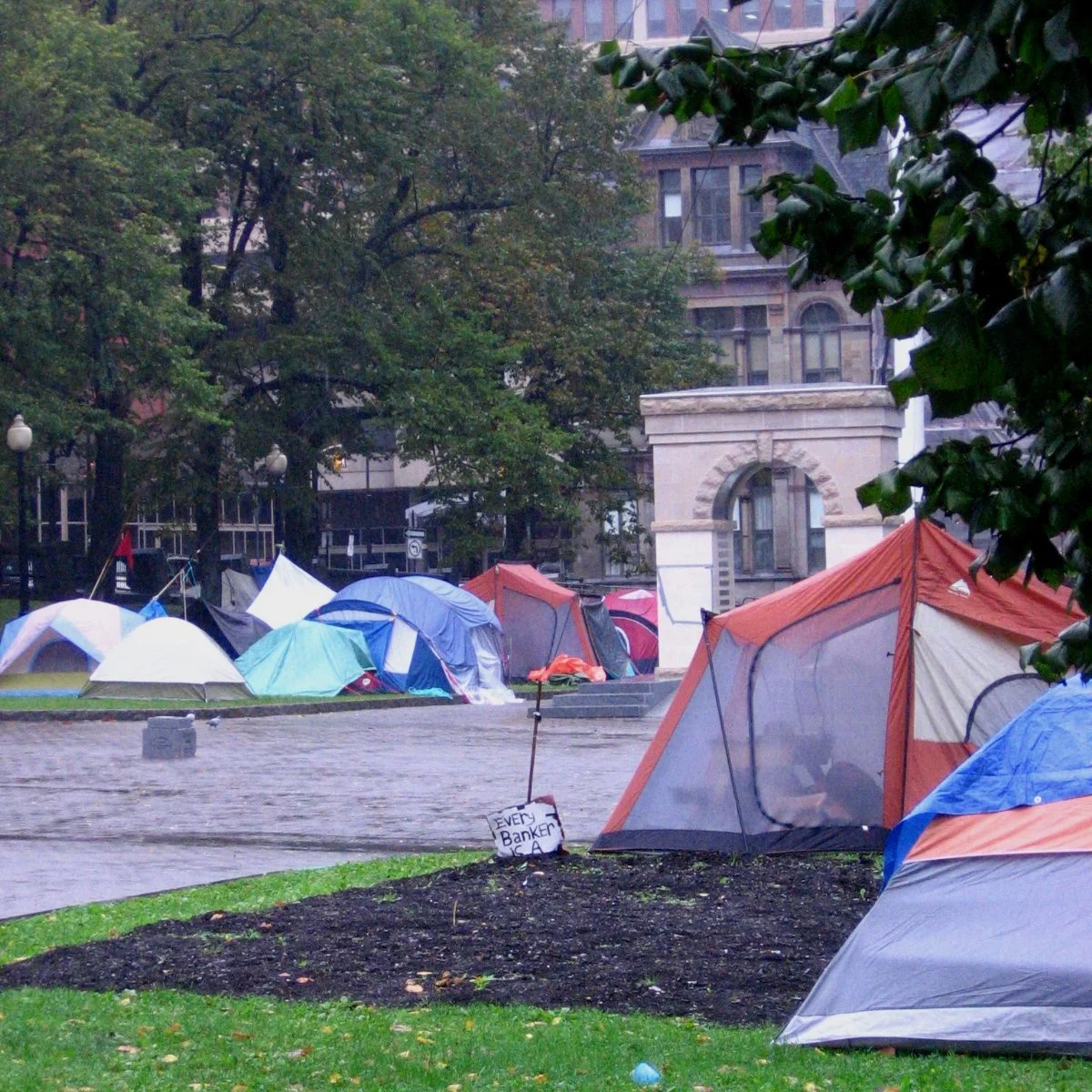
Settle for tents
— Photo by Verne Equinox
Inside South Shore Plaza in 2012
— Photo by John Phelan
Adapted from Robert Whitcomb’s “Digital Diary,’’ in GoLocal24.com
Everybody knows that we need more housing, but far too many groups fight building it even in places where it makes the most sense.
Consider how neighborhood groups in Braintree, Mass., are fighting a proposal by ZOM Living to put up 495 apartments on part of the aged South Shore Plaza’s parking lots, which are now often much less than half filled even in prime shopping hours amidst the brick-and-mortar store implosion. The mall opened in 1961.
The idea is to turn the location into a vibrant mixed-use community on what is now wasted space. It’s in a densely populated area very close to Boston and is served by the MBTA. Further, the project would bring the town much needed property-tax revenue, some of it as a result of new business at the surviving stores from people living in the new complex.
Braintree’s population grew by about 3,000, to about 39,000, between 2010 and 2020, during which time the town only added 775 housing units, according to a town planning document.
But the housing plan has fervent foes, who say that they don’t want more traffic, though many of the apartments’ residents would take public transportation and do much of their shopping and other activities right there in the ZOM development. The foes also fear that it would crowd Braintree’s now-underfunded public schools, though the project could produce more money for the schools. There also seems to be concern that riff raff will occupy some of the apartments, rather than the allegedly respectable suburban folks who live in houses.
In any event, whether it’s solar arrays, wind turbines or much needed housing, we need to use the ever increasing wasted space on mall parking lots.
Hit this link for the aforementioned Braintree master plan.
What’s next? Huge tent cities to house those who can’t afford to live under roofs?
If Blue States are to compete with Red ones in luring and keeping workers, they must put up much more housing to bring rental and purchase costs under control. The pull-up-the-bridge approach looks like a slow-motion economic disaster.
Unless artificial intelligence makes many of those workers redundant.
The Gen. Sylvanus Thayer birthplace in Braintree.


